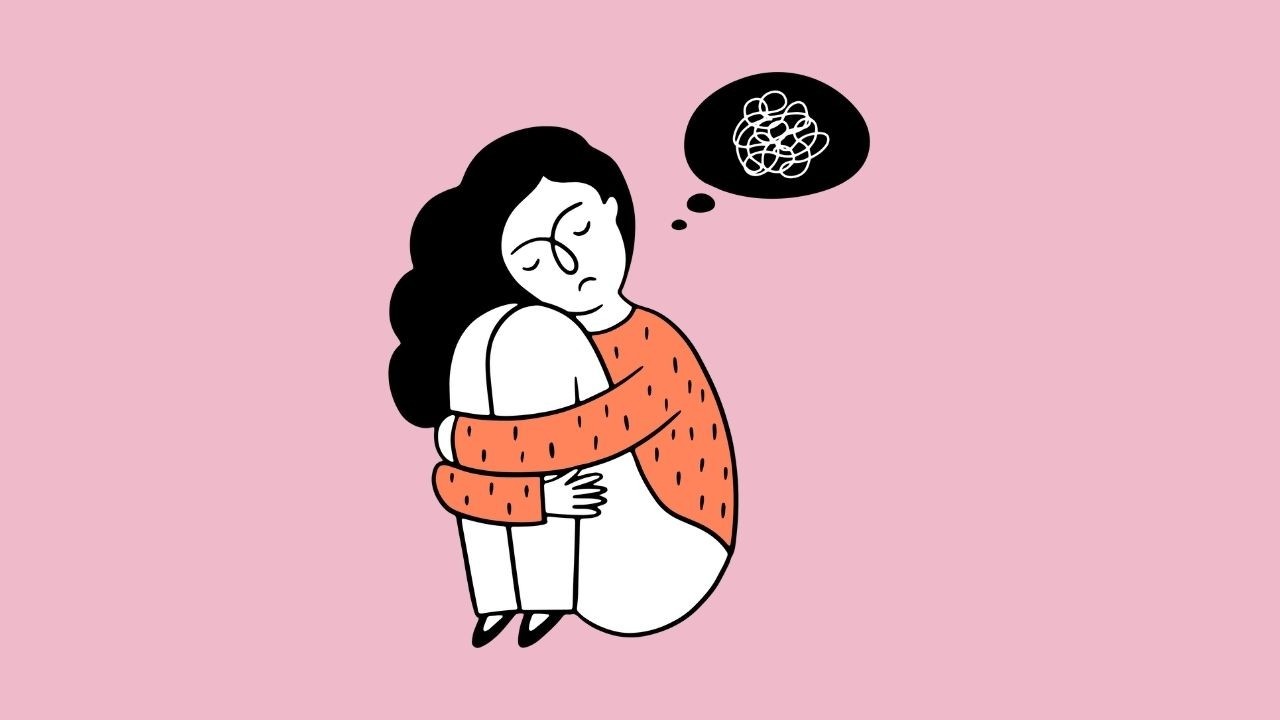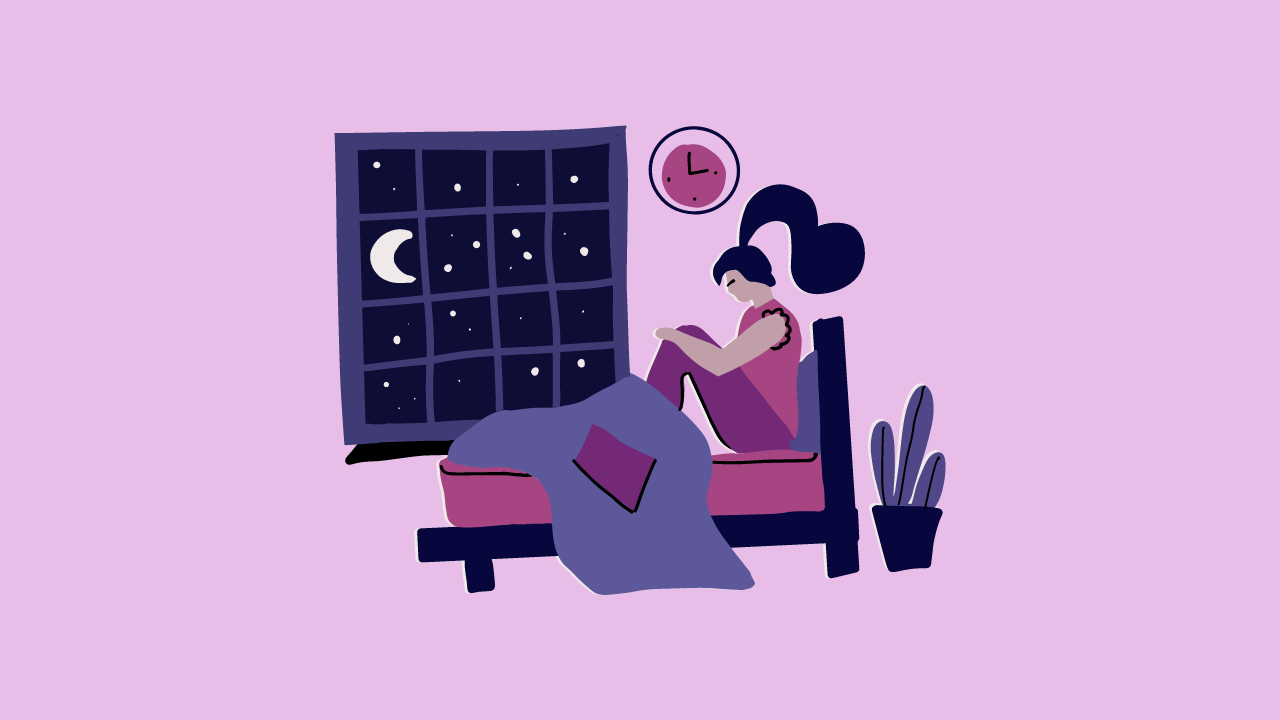
2 Anxious 2 Train
Feb 18, 2022Raise your hand if many days you feel less “2 Legit 2 Quit”.... and more too anxious to want to do much of anything. You aren’t alone. Women are nearly twice as likely as men to be diagnosed with an anxiety disorder in their lifetime. Feisty Triathlon Head Coach & Educator Miranda Bush shares practical tips on how to train when anxious feelings arise.
Text by Miranda Bush, Feisty Triathlon Head Coach & Educator
As a self proclaimed “morning person,” in my younger years I would bounce out of bed, ready to seize the day. As I get older, I still wake with gratitude, but it often takes a little more intentionality.
Many days I feel less “2 Legit 2 Quit”.... and more too anxious to want to do much of anything.
As a woman, scientific data points to me not being alone in this struggle. While I don’t have an anxiety disorder, I experience more daily anxiety than ever. And our predisposition to developing anxiety can increase as we navigate hormonal fluctuations through stages of life.
Anxiety is a normal response to stress, and isn’t always a bad thing. I personally have experienced the “good” anxiety many times that comes alongside big moments, whether for my athletes or myself. I am sure many of you know that feeling—a dose of uncertainty combined with a jolt of excitement from preparing to step outside your comfort zone.
But anxiety in the form of excessive worry, fear, and unease can be physically uncomfortable to potentially very debilitating. And when it gets to be uncontrollable or excessive to the point where it affects quality of life, it may be an anxiety disorder. In normal anxiety, when the stressor is over, the anxious response usually goes away. In anxiety disorders, removing the stressor or trigger doesn’t always reduce the anxiety.

Anxiety disorders are real, serious medical conditions, and are the most common and pervasive mental disorders in the United States. According to a report from the Anxiety and Depression Association of America, an estimated 264 million people worldwide have an anxiety disorder. And women are nearly twice as likely as men to be diagnosed with an anxiety disorder in their lifetime. The term "anxiety disorder" refers to specific psychiatric disorders that involve extreme fear or worry, and includes generalized anxiety disorder (GAD), panic disorder and panic attacks, agoraphobia, social anxiety disorder, selective mutism, separation anxiety, and specific phobias. Data shows that for Black women, anxiety is even more chronic and the symptoms more intense than their white counterparts.
Although I cannot offer a wave of a magic wand to magically erase all negative anxiety, I can let you know some hopeful information for women in triathlon. Physical activity has been pointed out as a promising strategy to mitigate the burden of anxiety, both when it comes to preventing it as well as to alleviate the symptoms. And intentional exercise in the form of training can help reduce the burden of anxiety. However, when your anxiety is high, tackling your training can often feel insurmountable. See below for some tips for training with anxiety.
What to Do When you Feel Too Anxious To Train
Connect to yourself
Practice cultivating mental, physical, and emotional self-awareness. When experiencing mild to severe anxiety before a training session, assess whether or not it will help you or has more potential to make it worse. If you can, commit to starting and then stay connected to how you feel throughout.
Practice daily mindfulness. According to a 2020 NYU study on the Psychology of the Female Athlete, both innate and learned practices of mindfulness can have markedly positive effects on the performance and wellbeing of athletes. Mindful athletes are more proven to mitigate reactions to their surroundings, adapt to the challenge faced and ultimately persevere. When feeling anxious take 5-10 minutes to focus, connecting to your breathing and staying present. Do this before, and even during, a training session to lessen the burden of anxiety.
Know your WHY. Cultivate a “why” or purpose for your athletic goals in order to help you prioritize them in a way that honors your mental, physical, and emotional health. When you feel too anxious to train, return to your “why” to decide how either completing or skipping the session can honor your needs for your goal and for your needs in life overall.
Be aware of your own insecurities and anxiety triggers. Be mindful of the messaging you take in from others and external sources of information and/or influence. Try to make decisions not based on what you “should” do according to outside sources, but by what you need to do to care for yourself.
Set Micro Goals and Pivot
When experiencing anxiety, set micro goals for your day as well as for your training. It might be as simple as starting with putting a sports bra on, followed by pedaling easily on your bike. Establish ways that you can measure success through the entire process, rather than waiting for finish lines. Reframe “failures” as valuable lessons.
Be open to pivoting when needed. For example, if you feel too anxious to swim, but a walk sounds more manageable, then go for a walk. Learn about the ever-evolving physiological changes in your body and how the stages of a woman’s life as well as how the menstrual cycle impacts your daily anxiety and/or anxiety disorder. Have grace for yourself when making decisions that benefit your mental and emotional well-being.
Find support
Find a support network, whether in person and/or online. Be open with your family, close friends, therapists, coaches and teammates.. Create systems of accountability with your support so that you can reach out when struggling to start and/or complete a training session.
Just Get Started
Arguably, the best thing to do about low grade anxiety is to let it be, as fighting it often makes it worse. An established baseline training routine can provide physical and mental benefits while still allowing anxiety to be present as needed. Sometimes you learn that you can train with anxiety by simply getting started. When anxious, commit to the first five minutes of your session. Check in at that time and honestly assess your ability to continue. You may find that continuing on with your plan can not only alleviate anxiety in the moment, but also help you learn that you can train with anxiety and still be okay. And completing your training can prevent the anxious feelings that can result from skipping a session.
Training and racing has the potential to add value to your life. Keep searching ways to find your own well-being– in triathlon and beyond. Stay present in your experience so that you can mentally evolve within it (and out of it, if needed). Focus on nurturing your mental health– when you feel “2 Anxious 2 Train” find and use mental tools, resources, and trusted support to care for yourself best through low to severe levels of anxiety.

Miranda Bush is the Head Coach and Educator at Feisty Triathlon. She is USA Triathlon and Training Peaks certified, as well as a certified Health Coach. She is also a graduate of Dr. Stacy Sim’s Women Are Not Small Men and Menopause for Athletes courses. As a longtime coach specializing in training women, her passion lies in using lessons from training and racing to teach athletes to evolve physically, mentally, and emotionally through sport. Miranda is also a longtime athlete and multiple Ironman and 70.3 distance podium finisher, maintaining a consistent racing career while working and raising her kids. She resides in Wisconsin with her three teenagers and husband who all love to race triathlon.
Get Feisty Triathlon straight to your inbox
Get the low-down on what's happening in the world of women's triathlon, tips & tricks to crush it on the race course and be the first to know about special offerings from our feisty sponsors.
We hate SPAM. We will never sell your information, for any reason.

